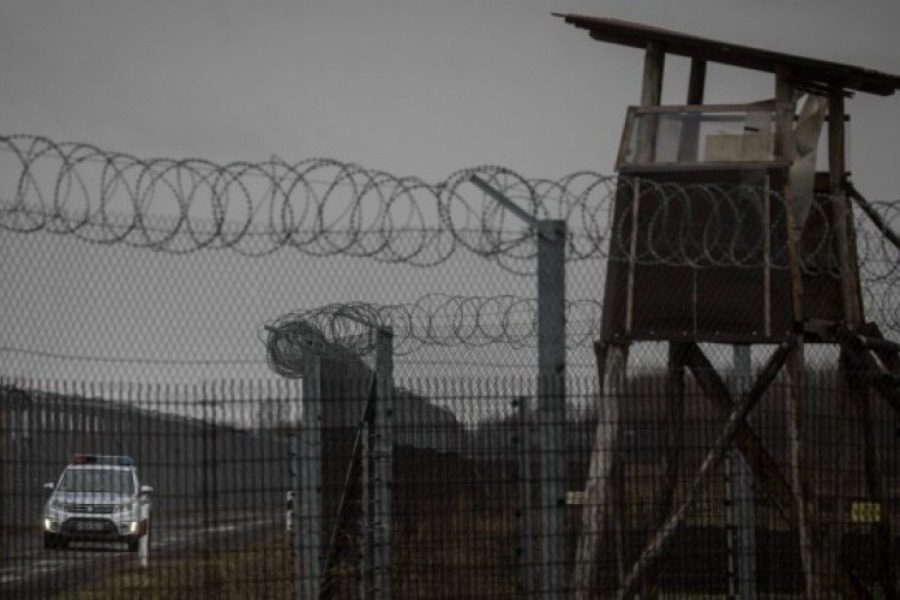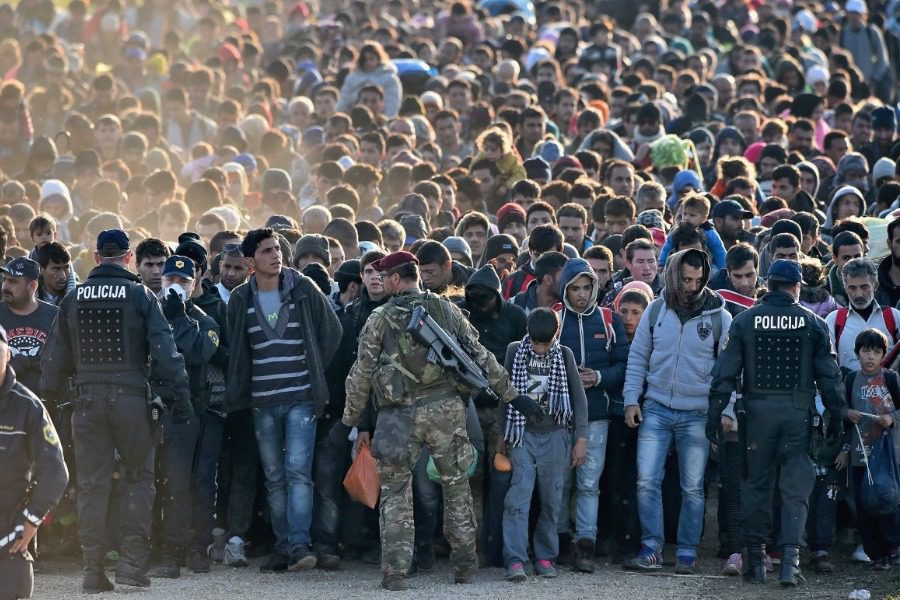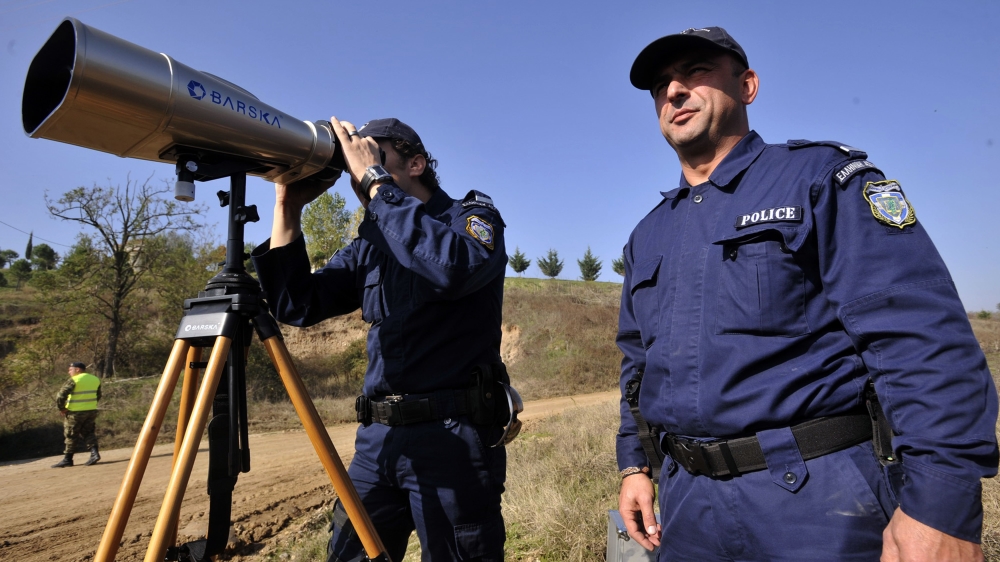Menschenrechtler und die Türkei
beschuldigen Griechenland, Migranten und Flüchtlinge illegal abzuschieben.
Türkische Dokumente, die dem SPIEGEL vorliegen, sollen die Anschuldigungen
belegen.
SPIEGEL ONLINE
 |
| Grenzfluss Evros (Archiv): Zurückgebracht - ohne Chance auf einen Asylantrag |
|
|
|
Am 3. November 2019 greift die
die türkische Polizei 252 Migranten in der Nähe des Grenzübergangs Kapikule
auf. Danach wird sie einen brisanten Aktenvermerk anfertigen: Die Migranten
hätten es über die Grenze nach Griechenland geschafft, schreiben die türkischen Beamten später in ihrem Bericht.
Aber dann seien sie gegen ihren Willen zurückgebracht worden, ohne Chance auf
einen Asylantrag.
"Push-Backs" nennen
sich diese illegalen Rückführungen von Migranten und Flüchtlingen. Sie sind
nach europäischem und internationalem Recht verboten. Dieses schreibt den
Staaten vor, potenziellen Asylbewerbern den Zugang zu einem effektiven
Asylverfahren zu gewähren.
Seit Jahren beschuldigen Menschenrechtsorganisationen
und Anwälte griechische Behörden, Migranten am Grenzfluss Evros illegal in
die Türkei abzuschieben. Der SPIEGEL hat nun türkische Dokumente erhalten,
darunter auch die Aufzeichnungen der Polizisten über den Vorfall am 3.
November. Diese legen nahe, dass Griechenland im großen Stil illegale
Push-Backs an der Grenze zur Türkei durchführt.
Harte Anschuldigungen gegen Griechenland
In der Migrationspolitik liegen
die Türkei und Griechenland schon lange im Clinch, Anfang November erreichte
der Konflikt zwischen den Erzrivalen einen neuen Höhepunkt: Das türkische
Außenministerium beschuldigte die griechischen Behörden, Flüchtlinge verhaftet,
sie geschlagen, ihre Kleider geraubt, Habseligkeiten beschlagnahmt und sie dann
in die Türkei zurückgeschickt zu haben. "Wir haben Fotos und
Dokumente", fügte das Ministerium hinzu.
Der griechische Premierminister Kyriakos Mitsotakis reagierte
knapp. "Diejenigen, die die Flüchtlingskrise ausgenutzt haben, indem sie
die Verfolgten als Spielball für ihre eigenen geopolitischen Ziele benutzt
haben, sollten vorsichtiger sein, wenn sie sich auf Griechenland
beziehen."
Mehr als 58.000 Push-Backs in
einem Jahr
Das türkische Material umfasst
Fallberichte und Interviewprotokolle. Zudem Fotos, die angeblich Migranten
zeigen sollen, die von griechischen Behörden misshandelt wurden. Dazu enthält
es bisher unveröffentlichte Daten, die vom türkischen Innenministerium zusammengestellt
wurden.
Diesen Daten zufolge hat
Griechenland in den zwölf Monaten vor dem 1. November 2019 insgesamt 58.283
Migranten zurückgeschafft. Die meisten registrierten Fälle betrafen
pakistanische Staatsangehörige (16.435), gefolgt von Afghanen, Somaliern,
Bangladeschern und Algeriern. Dazu kommen mehr als 4.500 Syrer.
Dem Dokument nach lag die Zahl
der gemeldeten Push-Backs allein im Oktober bei mehr als 6.500. Ein endgültiger
Beweis sind die Dokumente nicht, die Anschuldigungen der Migranten lassen sich
nicht unabhängig verifizieren. Und Griechenland bestreitet die Vorwürfe.
Allerdings stimmen sie mit ähnlichen Berichten von Menschenrechtsorganisationen
überein. Die Menge der Zeugenaussagen verschärft die Zweifel an den
griechischen Unschuldsbeteuerungen.
Die am 3. November festgenommenen
Asylbewerber wurden nach türkischen Angaben später von der türkischen Polizei
befragt und in ein Abschiebezentrum in Edirne gebracht, die Stadt liegt etwa 10
Kilometer von der Grenze entfernt. Alle bis auf die Syrer würden in ihre
Herkunftsländer zurückgeschickt, erklärte ein türkischer Beamter. Die Syrer
würden an den türkischen Ort zurückgebracht, an dem sie sich zuerst registriert
hätten.
Beraubt, eingesperrt,
zurückgebracht: Die Geschichte eines Syrers
Einer der acht Syrer, die am 3.
November von der türkischen Polizei verhaftet worden sind, gibt an, mit seiner
Frau vier Jahre zuvor aus Aleppo geflohen zu sein. So geht es aus der Abschrift
des Interviews hervor. Zunächst habe der studierte Jurist demnach als Kassierer
in Istanbul gearbeitet. Dann habe er "aus wirtschaftlichen Gründen"
beschlossen, nach Griechenland zu gehen.
Mit einem Schmuggler überquerte
der Syrer die Grenze, in der griechischen Stadt Alexandroupolis schließlich
stellten er und seine Frau sich der Polizei, um Asyl zu beantragen. Stattdessen
seien allerdings ihre Besitztümer beschlagnahmt, sie selbst in eine Zelle
gesteckt worden. Laut Interviewabschrift wurden die beiden Syrer zwei Tage
später von der griechischen Polizei zusammen mit anderen Migranten
zurückgebracht.
14 Polizisten sollen die Gruppe
zum Fluss Evros begleitet haben, auf 150 Kilometern markiert er die natürliche
Grenze zwischen den beiden Ländern. Anschließend hätten zwei Polizisten das
Paar in einem Boot zurück auf die türkische Seite befördert.
Griechisch-türkisches
Grenzgebiet
In letzter Zeit würden vermehrt
Migranten zurückgebracht, nachdem sie mit Booten den Evros überquert hätten,
heißt es in dem Bericht der türkischen Behörden. So gibt der Gouverneur von
Edirne in einem Schreiben vom 29. Oktober an das türkische Innenministerium an,
dass zwischen Anfang Januar und Ende September insgesamt 91.681 illegale
Migranten in seiner Provinz aufgegriffen worden seien.
Dies sei ein dramatischer Anstieg
im Vergleich zu den knapp 30.000 Festgenommenen im Jahr 2016. Laut türkischen
Behörden gaben mehr als 55 Prozent der festgenommenen Migranten an, es nach
Griechenland geschafft zu haben, aber trotzdem zurückgebracht worden zu sein.
Die Zahl spiegelt den erhöhten
Druck an den Außengrenzen Europas wider. Seit dem Frühsommer steigt die Zahl
der Migranten, die auf den griechischen Inseln in der Ägäis ankommen. In den
vergangenen Monaten versuchen auch wieder deutlich mehr Migranten, den Evros
auf illegalem Weg zu überqueren. Nach den Daten des UNHCR kamen 2018 über den Evros mehr als 18.000 Migranten in die EU - ein
Anstieg von 173 Prozent gegenüber 2017.
Die Überquerung des reißenden
Grenzflusses ist gefährlich, immer wieder endet sie tödlich.
Die Route hat aber auch Vorteile: Wer es unerkannt über den Fluss schafft, wird
nicht wie auf den griechischen Ägäis-Inseln unter unmenschlichen Bedingungen in
ein Lager gepfercht. Zudem liegt die Region viel näher an der Balkan-Route, die
von Nordgriechenland nach Mittel- und Nordeuropa führt und wieder verstärkt genutzt
wird.
Die griechischen Behörden weisen
die türkischen Vorwürfe zurück. Es gebe keine Push-Backs, teilte ein Sprecher
des griechischen Ministeriums für Bürgerschutz auf Anfrage mit. Bisher haben
griechische Behörden nur wenige der Beschwerden überprüft - und fanden demnach
keine Beweise für Fehlverhalten.
Die Menschenrechtskommissarin des
Europarates, Dunja Mijatovic, erklärte auf SPIEGEL-Anfrage, dass in den letzten
Jahren sowohl in der Türkei als auch in Griechenland illegale Abschiebungen
dokumentiert worden seien - und mahnte eine menschlichere Migrationspolitik an.
13/11/2019







![In September, new European Commission President Ursula von der Leyen called for 10,000 border guards by 2024 [File: Nikolas Giakoumidis/AP]](https://www.aljazeera.com/mritems/imagecache/mbdxxlarge/mritems/Images/2019/11/5/43dacb6320db4e1cb5958d137809d57c_18.jpg)

